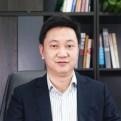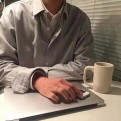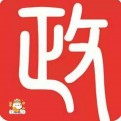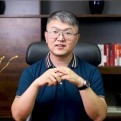英语改为反问句的方法
问题描述
- 精选答案
-

1. 由连系am,is,are构成的句子:变一般疑问句时把am,is,are提到句子的前面,句尾用问号即可。
变否定句时直接在am,is,are后面加not即可。例如:肯定句:He is a student.一般疑问句: Is he a student?否定句: He is not a student.反问句: He is a student, isn't he?He isn't a student, is he?画线提问: 对he提问: Who is a student?对 a student 提问: What is he? or What does he do?
2. 由情态动词can, may, should等构成的句子: 变一般疑问句时把can,may,提到句子的前面,句尾用问号即可.变否定句时直接在can,may,后面加not即可. 例如:肯定句: She can swim.一般疑问句: Can she swim?否定句: She can not swim.反问句: She can swim, can't she?She can not swim, can she?画线提问: 对she提问: Who can swim?对swim提问: What can she do?
3. 由行为动词构成的句子: 需要加助词do或does. 变一般疑问句时把do/does放在句子前面. 例如:肯定句: They play football after school.一般疑问句: Do they play football after school?否定句: They don't (do not) play football after school.反问句: They play football after school, don't they?They don't play football after school, do they?画线提问: 对they提问: Who play football after school?对play football提问: What do they do after school?对after school提问: When do they play football?
- 其他回答
-
含有be动词反问句:
He is a teacher.---- He is a teacher,isn’t he?(反意疑问句)
She isn’t a teacher.---- She isn’t a teacher,is she?(反意疑问句)
They are teachers.---- Aren’t they teachers?
He is going to school.---- Isn’t he going to school?
含有实意动词的反问句:
She teaches English.---- She teaches English,doesn’t she?(反意疑问句)
He doesn’t like music.---- He doesn’t like music,does he?(反意疑问句)
He teaches English.---- Doesn’t he teach English?
You like music.---- Don’t you like music?
含有情态动词的反问句:
You can speak English.----You can speak English,can’t you?(反意疑问句)
He can’t speak English.---- He can’t speak English,can he?(反意疑问句)
You can speak English.---- Can’t you speak English?














